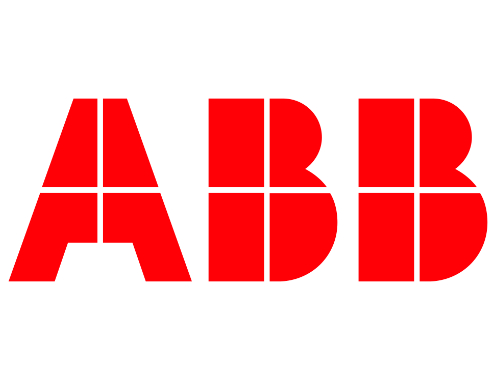Donna Avellana Künzler - Head of Procurement Process Excellence & Digital Transformation at ABB


Donna Avellana Künzler is the Head of Procurement Process Excellence & Digital Transformation at ABB in Zurich.
In conversation with George Weemes, Donna discusses how her strategic initiatives contribute to business value, along with her reflections on innovation, sustainability, and the people culture at ABB.
She also shares what inspired her move to Switzerland, strategies for those looking to join a different industry, and her proudest achievement…
How do your initiatives and strategic decisions contribute to overall business value?
Before I do anything - especially when I’m defining my roadmap for the next five years – it has to be aligned with our business strategy. This strategy means no one questions its validity and eliminates a lot of talk at that level, especially with the executive committee.
My initiatives and strategic decisions are closely aligned with our overarching business strategy, ensuring they inherently contribute to business value. In particular, my focus on procure-to-pay (P2P) process governance and digitalization drives several key benefits.
For example, by establishing robust governance frameworks and ensuring compliance with regulatory standards, we mitigate risks and enhance operational integrity. Then, streamlining and optimizing P2P processes leads to increased efficiency, reduced costs, and improved accuracy of our activities. And, of course, implementing digital solutions transforms our internal processes, making them more agile, scalable, and responsive to changing business needs.
Ultimately, these efforts not only improve our internal operations, but also deliver significant value to our customers through better service quality and reliability; you always have to tie it back to the customers. That’s how you get everyone on board.
As a hiring manager, how do you approach building strong relationships with your Talent partner to attract and secure top candidates?
When I hire for a position, it always starts with a briefing session. That’s the opportunity where I explain the background and context: Why I need the role, where it fits into my organization, and what I’m looking for. It’s all about communication. The job description is important, but sometimes there’s more behind it - things that aren’t written down, but are still essential to share as a hiring manager.
I make sure to clearly communicate all of this to my Talent partner. However, when it’s a more critical role, I also bring in a full hiring team, which includes the HR Talent Manager and the panel of interviewers.
Then I go a step further and define the evaluation criteria in detail. That way, we’re all aligned, screening in a consistent way. It reduces subjectivity and keeps the process objective; we’ve all agreed on what aspects we’re evaluating and how candidates need to demonstrate those capabilities.
For me, it’s about being a team. You’re all partners in the journey, and that’s how you attract and secure the best talent for the role.
From a cultural perspective, what excites you most about working for ABB, particularly its commitment to innovation?
Definitely the whole innovation part. I like companies that are at the forefront and pioneers in their industries. When I was researching ABB, I was so impressed by the rich history in innovation and the fact that they’re still going strong in that area. There’s this unwavering commitment to making the world a better place, and sustainability is right at the top of our agenda. It makes me proud to be part of a company that truly cares for the world.
I also love how our new tagline, Engineered to Outrun, speaks to that mission. It’s about empowering companies to become more energy efficient and ensuring we all have a better future.
Beyond the innovation and sustainability, I was also pleasantly surprised by how much ABB focuses on its people. I’ve only been with the company for four years, but it quickly became clear why it’s so hard to get in, because they look out for their employees.
There’s a very active internal career portal, and they’re open to giving people opportunities in roles that might be completely different from what they’ve done before. It shows a real belief in people’s potential, and that kind of support aligns with my own values.
What drew you to Switzerland as a place to live and work?
Before I moved to Switzerland, I had visited regularly for two years. What drew me here was the wonderful nature and, of course, the work-life balance. I remember sitting in an office on a Friday afternoon, and people were like, “You're still here? What are you doing here? Go home, it’s the weekend!”
That was so refreshing to me; everyone focuses on the balance between work, family, and personal relationships. It’s something that I treasure now, especially after becoming a mother. The level of flexibility that I’ve experienced here, particularly with ABB, is something I really appreciate. Before, I never understood how important flexibility was, but now I see how it makes a big difference. Switzerland is one of those places that truly values work-life balance, and I think that’s a big draw.
Of course, people sometimes say Switzerland is expensive, but the reality is you get paid a premium compared to other countries, and, with some smart living choices, the cost of living becomes manageable.
On top of that, there’s a huge focus on innovation here, and Switzerland has one of the highest innovation rates per capita. It's exciting to be in a place that values progress.
And let’s not forget about Swiss neutrality; it’s one of the reasons the country is so stable, which makes it a great place to live and work.
Is there any advice you have for people looking to move to Switzerland?
Network, network, network! Connections mean a lot in Switzerland, especially when you're job hunting. The best way to get your foot in the door is through referrals - that’s always number one. It can be tough coming from outside and not knowing anyone. Even for me, as a hiring manager, if I already know someone, that takes away a lot of doubt in my mind when considering them for a role. So, building relationships and connections is key.
But it’s also about doing your research. Switzerland isn’t for everyone. It’s important to understand the culture and the way things work here before making the move. It might not be the right fit for everyone, and that’s something worth considering.
What has been the proudest moment of your career so far?
My proudest moment was two years ago when the Filipina Women’s Network awarded me as one of the most influential Filipino women in the world. It was an award I really treasure. It was very humbling, and it made me incredibly proud.
The organization is one of the most globally recognized for the Filipino community, and they focus on honoring women who have not only come a long way in their careers, but also have a strong impact as community builders.
Receiving that award was a huge validation of my work, especially in digital transformation and process improvement, and it also recognized my contributions outside of work. It remains one of the highlights of my career.
What advice or strategies would you offer to someone looking to successfully pivot into a new industry?
I’ve never consciously pivoted to a new industry - it usually came more as a consequence of the roles I was taking on. For me, it’s always been more about the role than the sector. But, if someone is set on switching industries, then I’d say the first thing is to get familiar with your target industry. Do your research and understand the key trends, challenges, and opportunities.
If you’re eyeing specific companies, do you know who the competitors are? What’s their culture like? Does their mission resonate with you?
Next, I’d look at identifying those target companies and seeing which ones align with your personal goals. From there, it’s about networking strategically. Reach out to people in those companies, attend relevant events, use LinkedIn, or even set up informational interviews. That kind of engagement really helps.
It might also be an opportunity for you to pivot within the group itself, especially if you're in a larger organization that operates across different sectors. For example, I’m currently in Robotics, but ABB also has divisions in Electrification and Process Automation. So, it could be easier to transition internally first, because you already have that credibility. People know you, and many can vouch for you. In my previous company, I did three different roles, and that was possible because they already knew me. It wasn’t just about what was on paper.
Another big piece is making yourself visible. You can use LinkedIn, contribute articles, present at conferences or webinars - things like that help people become aware of who you are and what you can offer. And, of course, think about your transferable skills: What can you bring in from your current or previous roles that would be valuable in the new industry? That kind of reflection is really important.
Lastly, stay persistent, be open to learning, and remain positive. A transition like this takes time, but with the right mindset and strategy, you’ll get there.
Is there one book or podcast you believe everyone should read or listen to, and why?
One of my all-time favorite books is The Alchemist by Paulo Coelho. It’s all about believing in your destiny and the power of the universe to guide you. There’s a line in the book that really stuck with me and still does to this day: “When you want something, all the universe conspires to help you achieve it.”
It’s such a beautiful thought, and it really makes you reflect: How much do you actually want something? For me, it’s tied to the idea of manifestation. The more you put your intention out into the world - what you truly want - the more people and circumstances align to make it happen. Eventually, things connect, and opportunities come your way.
It’s a great message of hope and of trusting. Even if the path isn’t always clear or easy, as long as you hold onto your dreams and keep believing, things will work out. It’s definitely a book I would recommend to anyone who’s navigating change or looking for direction.
Thank you Donna for speaking to George Weemes, Associate Director in our Procurement & Supply Chain recruitment team in Switzerland.
Views and opinions contained within our Executive Interviews are those of the interviewee and not views shared by EMEA Recruitment.






You can also use your social account to sign in. First you need to:
Accept Terms & Conditions And Privacy Policy